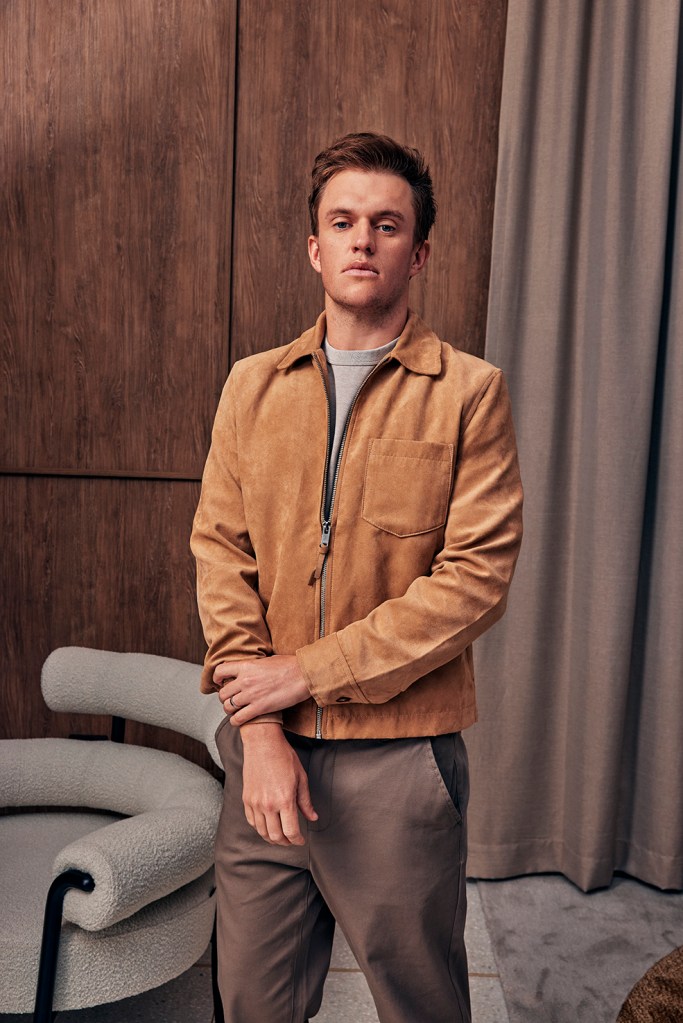Blackbird-and-Woolworths-backed start-up Eucalyptus revolutionised the telehealth sector pre-COVID-19 through its multiple online health clinics. It bucked the downturn in tech funding in 2023 by moving to prescribe Ozempic through its weight-loss-focused channels. The journey has not been without controversy.
This story featured in Issue 12 of Forbes Australia. Tap here to secure your copy.

What does the ex-head of marketing for a mattress company really know about health and weight loss? “I’ve had that question asked of me often – and heard it with a bit more of a malicious undertone,” Tim Doyle, CEO and co-founder of telehealth company Eucalyptus, retorts. “But I’d never built a mattress before, either.”
Doyle, who worked at mattress start-up Koala, co-founded Eucalyptus in 2019 alongside fellow Koala alumni Charlie Gearside and Alexey Mitko and ex-R&D Lending’s Benny Kleist. Gearside was the creative director, and Doyle worked alongside him.
“We were thinking about areas of the world where there was friction, and in health, you’re constantly having to deal with multiple providers across your journey,” Doyle said.
Gearside and Doyle, an entrepreneurial pair, liked how Koala made a complicated industry simpler. And so coffee breaks at work were spent mulling business ideas.
Fast-forward to today, and the co-founders are behind five online telehealth clinics: Pilot (for men’s health issues like erectile dysfunction), Kin (for women’s reproductive healthcare), Juniper (for women’s health), Software (for skin), and its newest clinic, Compound (a high-end men’s health clinic).
Along its journey, Eucalyptus steadily gained investor backing from the likes of Woolworths and Blackbird, and by 2021, the company was valued at $450 million.
But that valuation would skyrocket in 2023 to $560 million as the company banked a further $60 million. Around the same time, Eucalyptus had decided to prescribe GLP1 medication Ozempic, manufactured by the $710 billion Danish pharmaceutical giant Novo Nordisk, via its weight-loss-focused clinics, Juniper and Pilot.
However, that decision drew controversy from general practitioners as the drug had only been approved for patients with Type 2 diabetes – not weight loss. Controversy would intensify with the company’s decision to switch to a compounded semaglutide – a sort-of replica version of Ozempic – which has since been banned by the Australian government, which has set a deadline for its discontinuance. (Compounding is where a trained health professional – usually a pharmacist – makes medicine for patients using raw ingredients. Traditionally, compounded medicines have been used as an option when a medicine approved by the TGA is not currently available or prescribed to a patient).
“The decision to facilitate the provision of compounded semaglutide was made very carefully and had patient continuity of care and safety at its core,” Eucalyptus says in a statement.
“Before Eucalyptus made this decision, we commissioned extensive independent laboratory testing from our two partner pharmacies to review the safety and quality of the compounded product. This testing went beyond those pharmacies’ compliance with the stringent regulatory controls that already applied to compounding pharmacies.”
While Doyle claims Eucalyptus patients have been using the compounded drug for six months with no reports of unexpected outcomes, the Australian government is not convinced.
“I think any founder that says competition doesn’t scare them is lying. You have to always keep an eye out… Four years ago, the main medication for obesity management wasn’t even public knowledge. The world changes very fast.”
– Tim Doyle, CEO and co-founder, Eucalyptus
In a statement released in May, the Australian government said that, unlike TGA-approved products, pharmacy-compounded products are not clinically evaluated by the independent regulator for safety, quality, or efficacy, and it banned the sale of these replica drugs.
“To keep Australians safe, new regulations will remove GLP-1RA, such as those being misrepresented and sold as replica Ozempic® or Mounjaro®, from the pharmacy compounding
exemptions,” the Minister for Health and Aged Care, Mark Butler, said in a statement.
“Australians should be able to have faith in the medications they use, including compounded medicines. That is a priority for the government,” the Minister for Health and Aged Care, Mark Butler, said in a statement. “This action will protect Australians from harm and save lives.”
Eucalyptus and other providers have been given until October 1, 2024, to seek a solution for patients using GLP1 alternatives. “In light of this decision, we are going to great lengths to secure sufficient access to commercial products to support our patients and ensure that their continuity of care is unaffected,” the company says.
But its latest cash injection suggests the scrutiny has not swayed investors who are instead buoyed by the continued growth of the telehealth industry.
Eucalyptus also has faced challenges before: in 2022, the company was forced to cut 50-60 staff after a loan agreement was pulled from an investment firm. It has a tonne of competitors and Doyle estimates that, in the US, there’s at least one competitor for each of its brands, and the products are largely the same.

Eucalyptus goes hard on health. L-R: Benny Kleist, Charlie Gearside, Tim Doyle. Image source: Forbes Australia
“I think any founder that says competition doesn’t scare them is lying,” he says. “You have to always keep an eye out in a world that’s moving as fast as digital health is. Four years ago, the main medication for obesity management [Ozempic] wasn’t even public knowledge. The world changes very fast.”
Pilot, for example, has an Australian competitor called Mosh, which is a personalised online health clinic offering solutions for erectile dysfunction and premature ejaculation. In the US, Maven is a virtual fertility care clinic.
“Initially, we were looking at mental health because there’s an enormous problem to solve there with fragmented offerings,” Doyle says. “It’s such a tough journey. But we landed on Pilot because discretion felt like the easiest problem to solve.”
Pilot, which focuses on men’s health solutions for erectile dysfunction, premature ejaculation, herpes, hair and weight loss, opened its digital door in 2019.
Times were different then. Telehealth and the wider digital health category were not as concrete as they became post-COVID-19. While telehealth services existed, more were added to Australia’s Medicare Benefits Schedule in 2020 (281 more items between March and May) and approved for rebates in response to growing restrictions.
At the end of 2021, it was estimated that since March 2020, over 86.3 million telehealth items introduced in response to the pandemic had been billed for services delivered to 16.1 million patients by more than 89,000 providers. Eucalyptus could not have predicted a pandemic or that it would have that effect.
“In the beginning, we couldn’t get approval to process online payments because the category of online medicine was not approved for banking in Australia.”
But as the pandemic forced regulatory changes, the digital healthcare provider forged ahead with Kin, Software, Juniper and now Compound.
“The launch of Kin coincided with the start of COVID-19, and so within three months, we had about 20,000 patients on our contraception membership,” Doyle says. “That was real validation.”
Eucalyptus’ continued growth is largely in line with the growth of the global telehealth market, which grew to US$101.2 billion in 2023 and is expected to grow at a compound annual growth rate (CAGR) of 24.3% between 2024 and 2030, according to GrandView Research.
According to Research and Markets, its latest clinic, Compound, is also on the mark. It’s riding the growing men’s health and wellness market, predicted to reach US$2.57 trillion by 2029, growing at a CAGR of 12.44%. That rise is partly driven by tech-enabled health monitoring and telemedicine, which is Eucalyptus’ sweet spot.
At $995 per month for non-medicated members or $1,495 per month for patients prescribed GLP1 medications, Eucalyptus says Compound is the ultimate high-end online men’s health clinic.
I think about semi-retirement four times a week. It’s a high-pressure job. The further you get along, the bigger the problems are to solve, particularly in healthcare.
Tim Doyle, CEO and co-founder, Eucalyptus
For the price, patients get access to testing, analysis, medical advice, supplements, coaching and – if it’s in their tier – medication like GLP1 drugs. The 12-week clinic launched in late 2023 to an initial trial cohort of 16 patients assessed as clinically suitable for GLP1 medication.
Doyle estimates the program has a waitlist of more than 2,400 patients, which is growing weekly. The issue, he says, will be scaling the interest.
“Creating physical experiences is substantially different to creating something entirely digital and has a whole other level of challenges around care and clear delivery at scale,” he says.
“We’ve been working on Compound for about 15 months now – usually, our brands take sub-90 days to build and launch. But this is the most concrete project we’ve ever taken on, so I think that’s reflected in the timelines, cost, and level of care provided.”
And Doyle believes the preventative healthcare market is ripe for disruption.
“There’s more clarity around what preventative health could be than ever before and more excitement in the space,” he says. “Nothing is guaranteed, and there are always risks associated with building a start-up, but fundamentally, the question is whether patients could manage the majority of their health digitally. And I think the answer is yes.”
Eventually, Doyle sees patients signing up for a membership with Eucalyptus to receive as much preventative care as possible through their dedicated providers.
“I imagine a world in five years where you’re tracking a whole lot of different markers with us, and you’re interacting with us about your decisions. In turn, we’re sending you the services you need to ideally maintain your best possible health for as long as possible.”
It’s a stressful gig, though. Mitko has moved into semi-retirement, and Doyle admits the pressure can get to him.
“I think about semi-retirement four times a week,” he laughs. “It’s a high-pressure job. The further you get along, the bigger the problems are to solve, particularly in healthcare. But, we have more than 50,000 obesity patients losing an average of 10% of their body weight. It’s pretty motivating. It energises me.”
Ozempic: Fast facts
- Ozempic belongs to a group of medicines called ‘GLP-1 receptor agonists’, which help control how the pancreas works.
- It’s manufactured by Novo Nordisk and is an injection that is used once a week.
- It contains the active ingredient semaglutide, which is used to lower blood sugar (glucose) in adults with Type 2 diabetes.
- It was approved in 2017 by the US FDA for use in adults with Type 2 diabetes.
- Weight loss is a common side-effect of using Ozempic to treat diabetes.
- Ozempic is not approved for weight loss, but semaglutide is approved for weight loss under the name Wegovy.
- Ozemic has a smaller dose of semaglutide than Wegovy. Wegovy is available in Australia as of August, 2024, according to Novo Nordisk.
- 13% of adults in the US have used a GLP-1 drug like Ozempic.
- The weight-loss market is expected to be worth around US$532.5 billion (AU$806 billion) by 2032, up from US$260.7 billion in 2022, growing at a CAGR of 7.6%.
Look back on the week that was with hand-picked articles from Australia and around the world. Sign up to the Forbes Australia newsletter here or become a member here.



